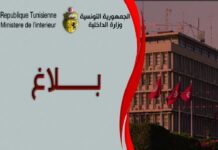It seems that the opponents of President Kais Saied have failed politically to dissuade the president from the measures he began to take on the 25th of last July. It also seems that they are trying to restore the atmosphere of opposition to the late Tunisian President Zine El Abidine Ben Ali by using the human rights paper to inflame the street against him and raise fears that things will return to the way they were before the fourteenth of January 2011.
The “Citizens Against the Coup” movement decided last Thursday to engage in a hunger strike to protest what it described as an individual rule that “pushes towards the use of the machine of repression and state institutions to stifle all voices of opposition.”
And after this movement failed to mobilize the street against Kais Saied – who, according to the latest opinion polls, is still trusted by the majority of Tunisians who support the measures of the twenty-fifth of July. Therefore, this movement is still trying to attract attention, both inside and outside Tunisia.
The Islamic movement Ennahda, as well as former President Mohamed Moncef Marzouki, joined this strike. Most likely, their goal is to simulate the atmosphere in which the opposition was in before the overthrow of the Ben Ali regime to influence local and international public opinion, after their previous accusations of the president overturning the constitution failed to inflame the street and the international community against it.
The president’s opponents, especially the “Citizens Against the Coup” movement, took advantage of the 4-year sentence of the Tunisian judiciary against Moncef Marzouki to reinforce fears of a return to dictatorship and portray him as a victim of freedom of expression, while everyone knows that Marzouki’s trial came after his admission that he was behind the cancellation of the Francophone summit, which was to be organized in Tunisia last November.
Marzouki had admitted that he had intervened with the countries to cancel the Francophone summit, which was postponed by a year, stressing that he is proud of that because, he says, he refuses to hold the summit in light of what he considers a “coup” and the absence of democracy. As a result of these statements, the Tunisian judiciary moved against Marzouki, who said in a statement on his official Facebook page that he would participate “even symbolically in the hunger strike,” and considered that the prison sentence against him was “political” and was also a reaction to his continued demand to “overthrow the coup.”
The Ennahda movement announced, “The participation of the leaders, Ajmi Lourimi and MP Faiza Bouhlal, in the hunger strike, with the aim of confronting the coup and ending its dangerous effects on the country.”
It is likely that this campaign is systematic and aims to distort the image of the president and present him as a dictatorial figure, due to the entry of Human Rights Watch, which is known for its support of Islamists, into the campaign line.
“There is an increase in trials against citizens in Tunisia before civil and military courts for insulting the president,” Human Rights Watch said, noting that there are repressive laws used by the Public Prosecution Office dating back to the pre-revolution era.











